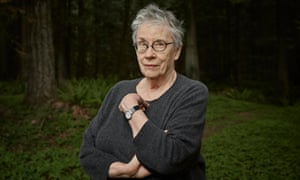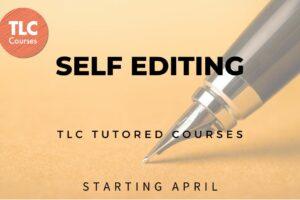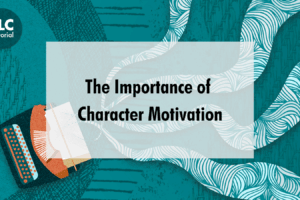Finding a voice
People talk a lot about finding your own voice when writing fiction, and I’ve heard people who think this a bit strange: who else’s voice would you, or even could you, use? I have to say my own reaction was along those lines. I was tempted to dismiss it as one of those first-world problems which are better ignored so that they can slip quietly away of their own accord, and I can just get down to the real business of writing.
I started writing a novel about two and a half years ago. After finishing a first draft of it I printed it out and sat down to read through properly what I’d put on the page. I found vast chunks of it that were really, really, not me. They neither said what I wanted to say, nor were they written in the way I wanted to write. I didn’t really know how they came to be there in the first place.
Whose voice is it then?
I don’t suppose anybody really knows, but if I had to hazard a guess, I’d say there are two things that might be contributing.
The first one is that I was probably just regurgitating things that I’d read, like a baby copies whatever it hears when first learning to speak, and only later, when he is older, does he have enough knowledge of the language to be able to make choices between words and structures – in short, to decide what he says.

This thought jarred a bit at first: I’ve been talking for years and I’m actually quite good at it! And there are experiences I want to write about – real experiences from my own life – which I can talk about well enough, so why can’t I just do it? But… it’s quite an unusual thing to do, to take those experiences and put them into a story (which, though it might be based on those experiences, isn’t actually true) and sit there, alone, writing about them, for days and months on end, not even knowing who – if anyone – will read it. Language exists so we can communicate but I was just sitting there writing a monologue. It’s certainly not an immediately obvious thing for a person to be doing. And I was engaging in this activity for the first time, so if I start to think of it like that, the baby parallel makes more sense. Hence, at the beginning, I probably copied the way other people had done it.
In trying to fit in with the exciting, emotive dramatic norms of the day I had lost what I wanted to do.
The second place where this voice that is not mine might have come from is, I think, through following, willy-nilly, the rules given to new writers, without giving serious thought to whether they were right for me. A lot of the advice available on creative writing is quite forcefully expressed, as though there were only one way of doing things, which means that a person has to be quite obstinately individual, and brave, to decline it.
I followed two pieces of advice which I think, in the end, were not right for me. Firstly, on drama. There seems to be a consensus that readers are impatient and demanding these days and so stories need to satisfy their need for exciting, fast-moving plots (the ‘frenzied action’ which James Wood refers to). I may be wrong, but that’s the impression I have. So I tried to introduce more drama into my plot.
The second one was to write in a way that draws the reader into the subjective world – the thoughts and feelings – of the protagonist. This style, often written in the first person, seems to have become very popular in recent years.
In summary, in trying to fit in with the exciting, emotive dramatic norms of the day I had lost what I wanted to do.
Making it mine
The first problem, when I saw it, was easy to resolve: I took out the drama and the intrigue, which had only been there in the first place because I thought they ‘should’ be. For example, in the original plot I had included a spy with evil intentions, and then in a later version I had a backstory where people died in a bomb explosion. I took it all out. I wanted to write about normal people leading normal lives.
The other problem was bigger. I realised I’d been manipulating the reader, both emotionally and morally, and I hadn’t wanted to do that. Ironically, emotional manipulation was one of the themes of the book I was writing. I then read a fair bit about psychic distance (in particular that brilliant article by David Jauss ‘From Long Shots to X-Rays’) and suddenly everything was clear: the relationship I’d been unconsciously developing between the reader and the protagonist was way off what I wanted it to be. I’d been hovering on the subjective end of Gardner’s scale of psychic distance. I’d completely overshot the target, which was the reader’s mind, and gone straight for the heart.

I found, when I decided not to follow the norms of the day, that it was easier to do if I didn’t see myself as breaking the rules. In linguistics (my professional background), people talk about patterns now, rather than rules. In syntax, for example, where once the phrase ‘I goes’, as used in certain dialects, was seen as breaking the rule for English subject-verb structures, it is now seen as deviating from the common pattern. It’s an important difference: patterns are descriptive, but rules are prescriptive. What I’ve found very helpful, if I ever doubt that going against the advice is going to work, is reading novels by writers I enjoy who do the same. Annie Proulx is one of my favourites. Her characters are often drifters, her plots are vague and often not pivotal to the novel. And she keeps the reader at arm’s length, not trying to persuade him of anything, but merely presenting a world to him and letting him do with it what he will.
Since then I’ve rewritten large parts of the novel, changing the distance the reader has to the narrative, and discovered, in the process, that the reader brings a fair bit to this equation. I haven’t found anything written about this (I’d be interested to hear if there is), even though the reader is half of this relationship. It’s an important factor in my novel because my main character moves between the familiar and the unknown, and this will also be the case for the reader, and to maintain a similar emotional distance (which is what I wanted to do) between the reader and the whole of the narrative – the known and the unknown – I had to adjust the writing.
I might not win competitions writing how I do, and I might have to self-publish my novel if it doesn’t fit in with the norms of the current market (though I do believe that at some point people will get tired of hurrying through life, and novels, and will want to linger again over the pages of a book instead of rushing to turn them). But it’s what I want to write, so I suppose, in the end, that’s my voice.








